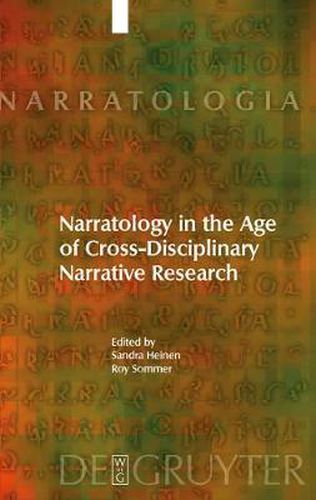Readings Newsletter
Become a Readings Member to make your shopping experience even easier.
Sign in or sign up for free!
You’re not far away from qualifying for FREE standard shipping within Australia
You’ve qualified for FREE standard shipping within Australia
The cart is loading…






This title is printed to order. This book may have been self-published. If so, we cannot guarantee the quality of the content. In the main most books will have gone through the editing process however some may not. We therefore suggest that you be aware of this before ordering this book. If in doubt check either the author or publisher’s details as we are unable to accept any returns unless they are faulty. Please contact us if you have any questions.
Narrative Research, once the domain of structuralist literary theory, has over the last 15 years developed into an international and interdisciplinary field. It is now commonly agreed that storytelling functions as a fundamental cognitive tool for sense-making and meaning production, and that human beings structure and communicate lived experience through oral, written and visual stories. Entitled Narratology in the Age of Cross-Disciplinary Narrative Research, this volume collects fifteen essays which look at narrative and narrativity from various perspectives, including literary studies and hermeneutics, cognitive theory and creativity research, metaphor studies, film theory and intermediality, as well as memory studies, musicology, theology and psychology. The topics touch on a wide range of issues, such as the current state of narratology and its potential for development, narrativity in visual and auditive art forms, the cultural functions of narrative, and the role of narrative concepts across the disciplines. The volume introduces interested newcomers to the ongoing debate, reflecting the diversity of research questions and methodological approaches involved. It takes a critical, yet cautiously optimistic stance with regard to the potential for interdisciplinary collaboration between narrative researchers, and invites experienced readers from any discipline interested in narrative to join this important debate, which promotes the exchange of ideas, concepts and methods between the humanities and the social sciences.
$9.00 standard shipping within Australia
FREE standard shipping within Australia for orders over $100.00
Express & International shipping calculated at checkout
This title is printed to order. This book may have been self-published. If so, we cannot guarantee the quality of the content. In the main most books will have gone through the editing process however some may not. We therefore suggest that you be aware of this before ordering this book. If in doubt check either the author or publisher’s details as we are unable to accept any returns unless they are faulty. Please contact us if you have any questions.
Narrative Research, once the domain of structuralist literary theory, has over the last 15 years developed into an international and interdisciplinary field. It is now commonly agreed that storytelling functions as a fundamental cognitive tool for sense-making and meaning production, and that human beings structure and communicate lived experience through oral, written and visual stories. Entitled Narratology in the Age of Cross-Disciplinary Narrative Research, this volume collects fifteen essays which look at narrative and narrativity from various perspectives, including literary studies and hermeneutics, cognitive theory and creativity research, metaphor studies, film theory and intermediality, as well as memory studies, musicology, theology and psychology. The topics touch on a wide range of issues, such as the current state of narratology and its potential for development, narrativity in visual and auditive art forms, the cultural functions of narrative, and the role of narrative concepts across the disciplines. The volume introduces interested newcomers to the ongoing debate, reflecting the diversity of research questions and methodological approaches involved. It takes a critical, yet cautiously optimistic stance with regard to the potential for interdisciplinary collaboration between narrative researchers, and invites experienced readers from any discipline interested in narrative to join this important debate, which promotes the exchange of ideas, concepts and methods between the humanities and the social sciences.